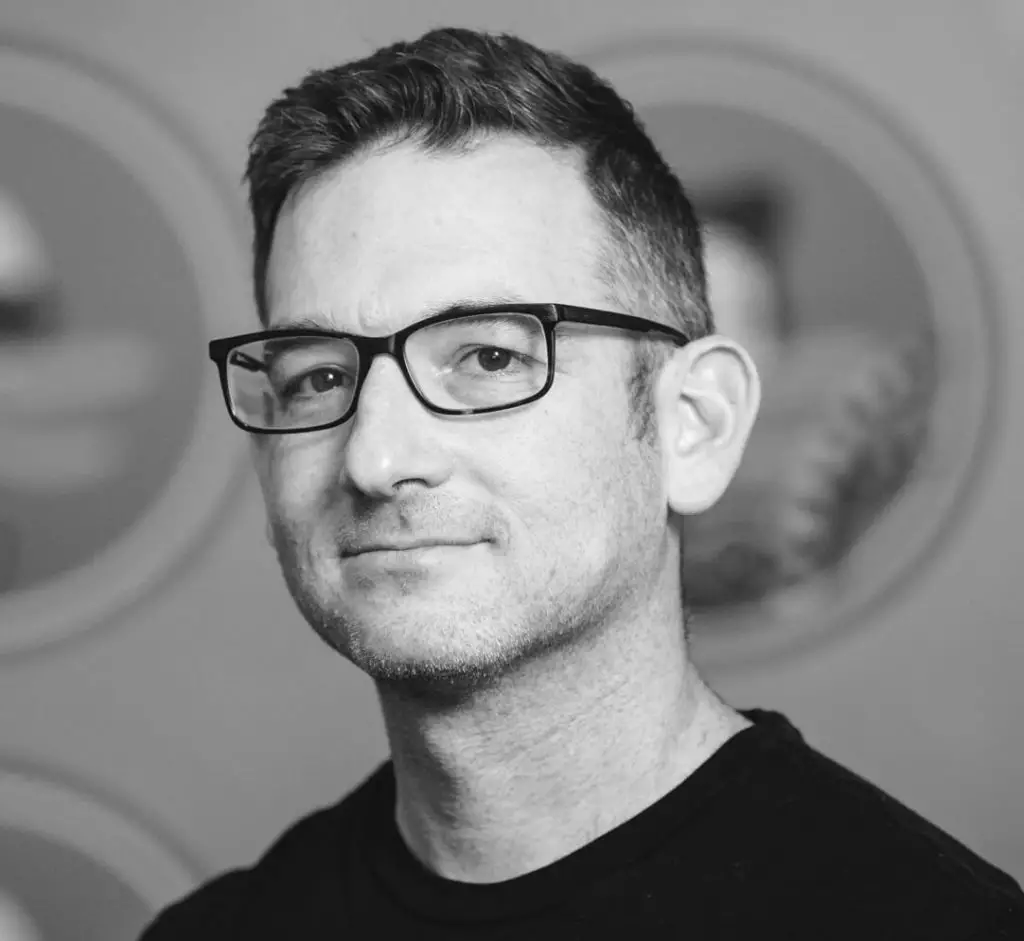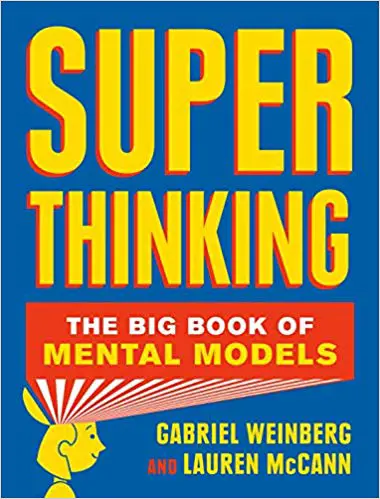Interview with Gabriel Weinberg, DuckDuckGo CEO: Mastering Mental Models to Improve Decision-Making
 Around 2003, Gabriel Weinberg discovered The Psychology of Human Misjudgment, Charlie Munger‘s speech, where Munger talks about behavioral economics and recognizing patterns to determine how and why we behave the way we do.
Around 2003, Gabriel Weinberg discovered The Psychology of Human Misjudgment, Charlie Munger‘s speech, where Munger talks about behavioral economics and recognizing patterns to determine how and why we behave the way we do.
The best decision makers in the world rely on a set of frameworks, called multiple mental models, that help them gather, process and act on information. These borrow from multiple disciplines and industries, from psychology to economics and more.
Gabriel understood the value and importance of applying these multiple mental models in investing and business, how they can be used to clarify the chaos (inevitably) encountered in complex problems, build fundamental guiding processes, and make better decisions.
This is the topic of Gabriel’s new book, Super Thinking: The Big Book of Mental Models (drops 6/18) – an illustrated guide to the most powerful mental models (over 300, grouped into 9 chapters). He wrote the book together with his wife Lauren McCann, who’s a statistician and researcher with a Ph.D. in Operations Research and B.S. with honors in mathematics from MIT.
Gabriel Weinberg is the CEO and founder of DuckDuckGo, the private search engine and internet privacy company that doesn’t track you – a bold and secure alternative to Google, founded in 2008.
He holds a B.S. with honors from MIT in Physics and an M.S. from the MIT Technology and Policy Program.
He is also the co-author of Traction: How Any Startup Can Achieve Explosive Customer Growth, a book that examines effective customer acquisition throughout the different stages of a business.
In our interview, Gabriel talks about the books he keeps coming back to, tactics he implemented at his company in order to get more deep work done, data privacy resources, big ideas he has changed his mind over lately, insights on writing his new book on mastering mental models, and more.
P.S. Super Thinking comes out on June 18th and you can pre-order the book using the links here.
What books had the biggest impact on you? Perhaps changed the way you see things or dramatically changed your career path.
The books I keep coming back to are the ones where I took away lasting mental models, which we also highlight in Super Thinking. These include Predictably Irrational and Thinking, Fast and Slow (about cognitive bias models), Difficult Conversations and Never Split the Difference (about negotiation models), Radical Candor (about management models), and Deep Work (about time management models).
Was there a moment, specifically, when something you read in a book helped you? Can you tell us about it?
At DuckDuckGo (my company), we designate Wednesdays and Thursdays as no standing meeting days in order to incentivize people to get more deep work done, i.e. have uninterrupted blocks of time to work deeply on their top priority. This tactic, along with several others — such as minimizing multi-tasking, specifying a weekly top priority, etc. — are in effort to operationalize the mental model of deep work.
DuckDuckGo’s main value is privacy related. Are there any privacy books or resources that you’d recommend to young people?
We’ve actually put a lot of effort to develop a privacy crash course on our blog and also available as a newsletter.
The Great Courses also offers several excellent privacy lecture series (also available on audible).
Tell us more about your reading habits. How do you make time for reading? How often do you read? What format do you prefer?
I read/listen a lot. I save articles throughout the day to Pocket, and often go through them in batch in the morning and night. I also consume a lot of podcasts when commuting/traveling. When I run out, I always have two or three audible books to turn to.
Do you have any note-taking system? How do you retain and apply what you read?
I do not actively take notes while reading, though I do use the Bear and Apple Notes apps to record notes generally.
[sc name=”subscribe”]
There’s such an abundance of information and sources available at our fingertips, that we risk to become “digitally obese”, and even be paralyzed by the extra information. Is there any way that you try to handle information overwhelm or manage social media? (example: are there any things that other people spend way too much time doing that you generally stay away from?)
I don’t read or seek out a lot of daily news, which I mainly get from my curated Twitter feed in which I don’t follow many people or accounts.
With the jobs market more and more unstable and insecure, lifelong education is key. At the same time, learning resources are becoming increasingly commoditized and know-how also becomes obsolete faster. What fundamental skills, those that will always matter, do you believe should be learned in schools?
That’s really why we wrote Super Thinking, which is meant to be a comprehensive collection of mental models needed for good personal and professional decision making, most of which are not effectively taught in schools. I believe if you can master these 300 concepts — yes, it is a lot, but they are very interrelated — you will completely level up your thinking. It’s the book I wish someone had given me earlier in my career, but it is good for anyone. As the anonymous saying goes, “The best time to plant a tree is twenty years ago. The second best time is now.”
Charlie Munger used to say that “any year that you don’t destroy one of your best-loved ideas is probably a wasted year”. What big ideas have you changed your mind over lately & what was the thinking process behind those changes?
I used to think what the United States really needed is a new Constitutional Convention to create a Modern Bill of Rights, and I thought about this concept for years. Now, though, I’m coming around to the fact that there is no way to do it without significant risk of unintended consequences.
You’re juggling multiple projects at the same time. Do you have any system or routine to prioritize writing and also balance everything else you want to work on? How do you avoid getting burned out?
I have really strong internal motivation on the projects I’m working on because they are mission driven, but even then it has been a slog. My wife and I have been working on this book for about three years, with me mostly working on weekends, and that took its toll for sure :). I’m glad it is finally coming out!
Finding a great idea for a book sounds like one of the most challenging aspects. What was the decision making process behind your new book, “Super Thinking”? Did it start with “this is something I enjoy reading about” and grew from there? How did you test it and decide it’s worth writing a book about mental models?
I have been thinking about this book for literally twenty years, and started writing different versions at different times. A few years ago, when thinking about how to better grow our executive team, I realized that to be a good executive you need to be a good decision maker, and to be a good decision maker, you need to master a set of mental models across a wide variety of disciplines. So, I made a list of them and published it on Medium. It went viral, and the publisher (Penguin Portfolio) who published my last book reached out and asked if I’d be interested in working on another — and the rest is about to be history.
Anything else you’d like to mention about the new book?
It comes out 6/18 and you can pre-order it now and find out more info (including the full list of models) here. They are grouped into nine narrative chapters, each with its own theme (e.g. time management, people management, unintended consequences, etc.) so it is easy to digest and refer back to.
Links where you can follow Gabriel Weinberg or learn more about his projects:
- Super Thinking book
- DuckDuckGo
- Connect with Gabriel on Twitter | LinkedIn
- Ye.gg
- Follow Gabriel on Medium
- DuckDuckGo’s blog: Spread Privacy
- Gabriel’s 2016 Medium blog post: ‘Mental Models I Find Repeatedly Useful‘
- Shane Parrish (creator of Farnam Street) has an interesting conversation with Gabriel: The Knowledge Project Ep. #58 [podcast]
All books mentioned by Gabriel Weinberg in our interview:
- Super Thinking: The Big Book of Mental Models, by Gabriel Weinberg and Lauren McCann
- Predictably Irrational: The Hidden Forces That Shape Our Decisions, by Dan Ariely
- Thinking, Fast and Slow, by Daniel Kahneman
- Difficult Conversations: How to Discuss What Matters Most, by Douglas Stone, Bruce Patton, and Sheila Heen
- Never Split the Difference: Negotiating As If Your Life Depended On It, by Chris Voss and Tahl Raz
- Radical Candor: Be a Kick-Ass Boss Without Losing Your Humanity, by Kim Scott
- Deep Work: Rules for Focused Success in a Distracted World, by Cal Newport
